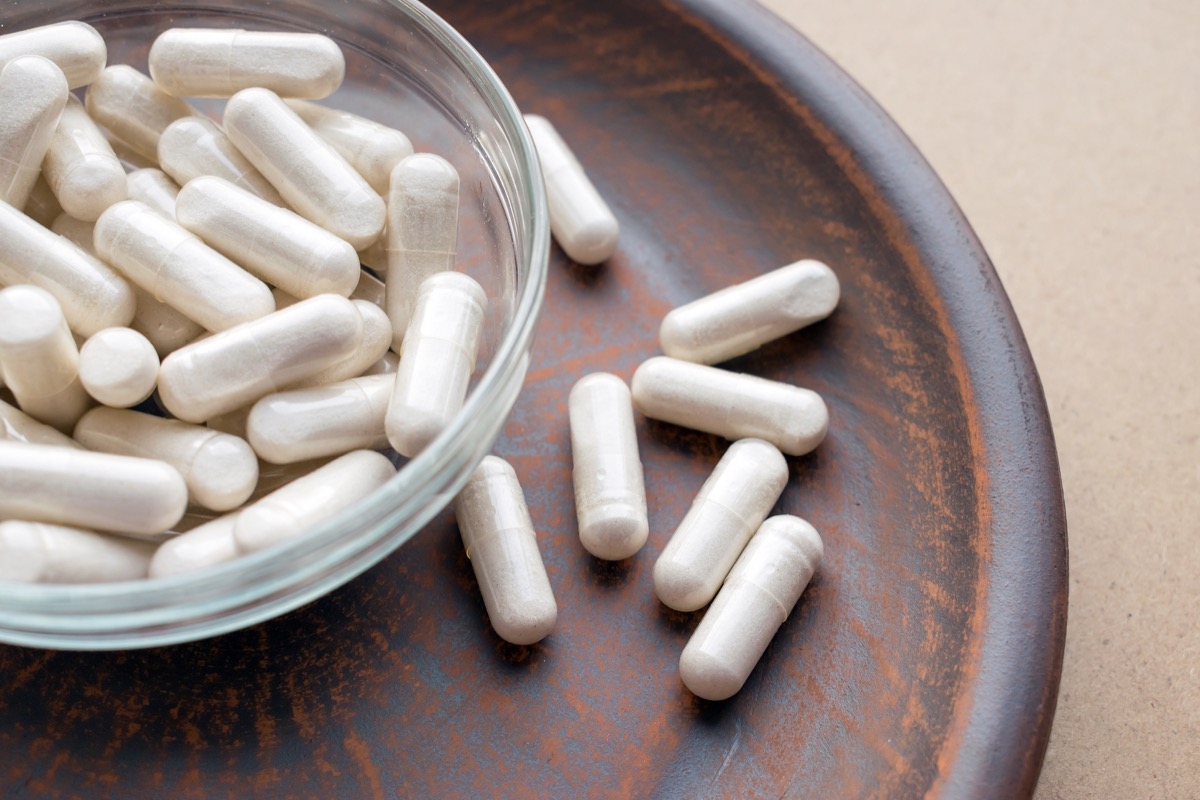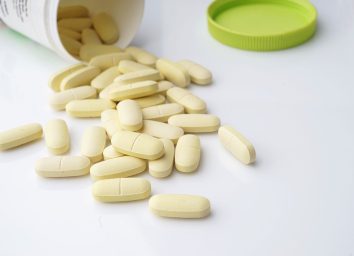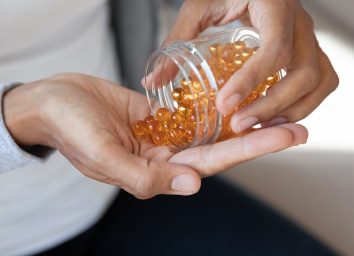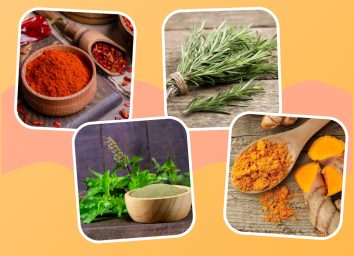Never Mix This Supplement With Alcohol, Experts Say

*Correction: A previous version of this article, "The #1 Worst Supplement You Can Take, According to a Dietitian," did not take into account the current body of research on kava, which has disproved many formerly-held conclusions about the plant's safety. We have updated this article to remove any misinformation and retitled it to more accurately reflect the data presented.
If you're like most Americans, you're currently taking at least one supplement. According to the CDC, 57.6% of U.S. adults use dietary supplements on a regular basis. and with the numerous claims behind the thousands of supplements on the market, we can't blame you. In front of you are countless supplements claiming to provide everything from better heart health to improved cognitive function to weight loss.
Something that may not be top of mind for you when taking supplements is the possible interactions they may have with your dietary habits, particularly if you're one of the 54.9% of American adults who drinks alcohol on a regular basis. When consumed together, certain supplements and alcohol may cause some negative side effects.
There's one supplement, in particular, that you may want to avoid on weekends if you're one who enjoys a few drinks out. According to Courtney D'Angelo, MS, RD, a registered dietitian and author at Fit Healthy Momma one supplement you should not take while drinking alcohol is kava.
What is kava?
Kava, also known as kava kava, is an herbal supplement that has long been used as part of ceremonial practices within certain South Pacific cultures, according to Robert Ashley, MD, an internist and assistant professor of medicine at UCLA in an article published to the UCLA Health blog.
It is often used to treat anxiety—and research suggests that it can sometimes be effective in doing so.
A 2013 study published in the Journal of Clinical Pharmacology found that among 75 participants with generalized anxiety disorder who took either kava extract or a placebo over a six-week period, members of the kava group saw a "significant reduction" in anxiety as compared to the control group.
Dr. Ashley adds that while some older studies have shown that consumption of kava supplements leads to a slower reaction time and an impairment of motor skills, "there has been no proof of any decline in cognitive function [linked to kava intake]."
But despite the calming benefits you may get from kava usage, it's important to know that this is one supplement you should not be mixing with alcohol.
Why shouldn't you mix kava with alcohol?
Like alcohol, kava tends to be used recreationally; however, mixing these two intoxicating drugs doesn't mean you'll have double the fun.
A 2015 review of research published in the Australian and New Zealand Journal of Public Health reveals that kava may enhance the effects of alcohol, and that, in one study, individuals who consumed both prior to a driving simulation were "significantly impaired" by the combination.
But temporary impairment of motor skills isn't the only thing you'd experience by consuming a cocktail of kava and alcohol. Taking this supplement and beverage simultaneously can also put a strain on your liver.
"[Kava] produces the feelings of relaxation, sedation, and anxiety relief. The more you use it the less powerful it is. Taking it with alcohol can increase these effects, which can cause an issue down the road with your liver," explains D'Angelo.
A 2018 report published by LiverTox, a database of clinical information and research on drug-induced liver injuries managed by the National Institute of Diabetes and Digestive and Kidney Diseases (NIDDK), an institute within the National Institutes of Health (NIH), notes that the mechanism by which kava might cause liver damage is "unclear," and that the liver toxicity associated with the supplement may be related to how it is prepared before consumption.
"Clinical cases of hepatotoxicity due to kava suggest an idiosyncratic or immunoallergic pathogenesis. The possibility of mislabeling or adulteration with hepatotoxic herbals is always an issue," the report states.
"If you are someone that thinks you can benefit from kava, be very careful and never take more than the recommended dosage," urges D'Angelo.
Takeaway
Since supplements are not regulated by the U.S. Food & Drug Administration (FDA), it's important to let your doctor know which kava supplement you're considering taking so they can help you determine the correct dosage and monitor for any possible interactions.
And, as always, make sure you speak to a healthcare professional before adding any new supplements to your routine.
For more health and safety news delivered to your inbox, sign up for our newsletter!
Read this next:








